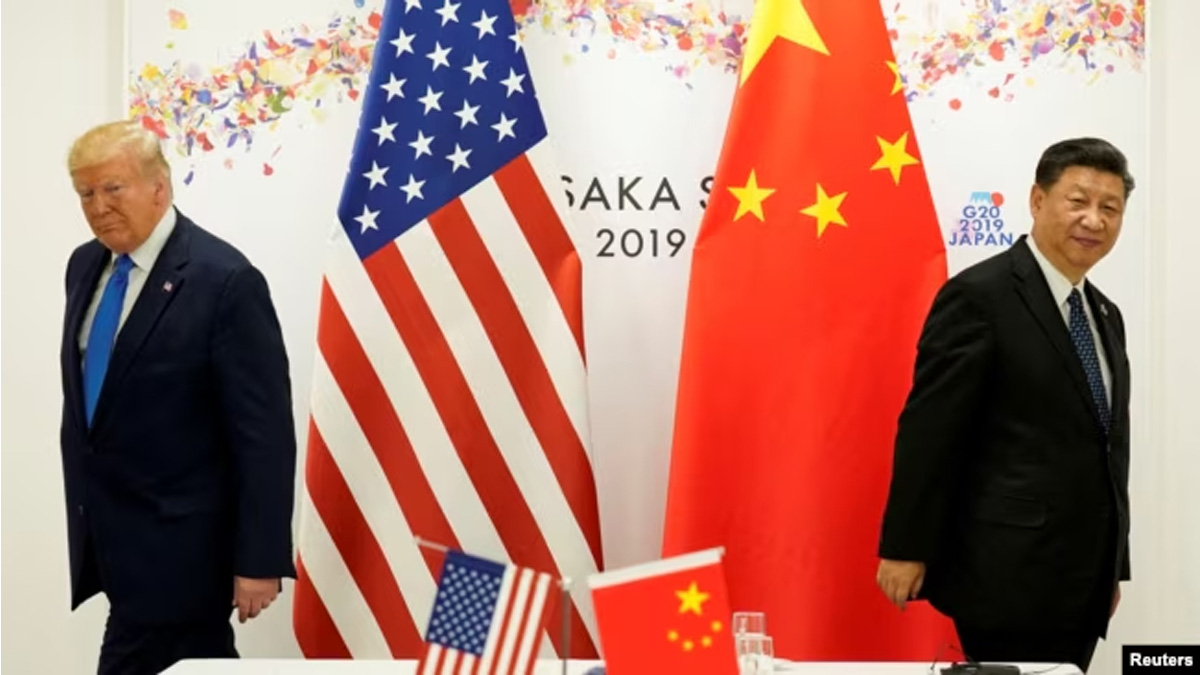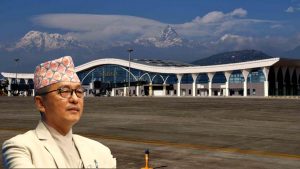
Beijing Shakes Up Trade Team as U.S. Tariff Pressures Mount and Global Tensions Escalate
As the U.S.-China trade war intensifies under President Donald Trump’s renewed tariff offensive, Beijing has appointed a new top trade envoy—signaling a recalibrated response to mounting economic and diplomatic challenges.
Li Chenggang, a veteran trade diplomat with decades of experience and law degrees from Peking University and the University of Hamburg, has taken over as China’s new representative for international trade negotiations and vice minister of commerce. He replaces Wang Shouwen, a key negotiator in the 2020 trade truce with Washington.
The leadership reshuffle comes at a time when both economic and political stakes are rising. Trump has sharply escalated tariffs on Chinese imports to 145%, while China has countered with retaliatory duties of up to 125% on American goods. Beijing says the moves are exerting “certain pressures” on its economy, even as it posted a better-than-expected 5.4% GDP growth in the first quarter—partly driven by exporters rushing to ship goods before new tariffs bite.
Diplomatic Rhetoric and Retaliation
On Tuesday, Trump once again lashed out at China, accusing it of breaking a major deal with U.S. aviation giant Boeing and alleging “zero respect” for the Biden administration. The White House, amplifying his remarks, declared that the “ball is in China’s court” and that Washington no longer feels obligated to strike a deal on Beijing’s terms.
In retaliation for the trade pressure, Beijing has clamped down on Boeing jet deliveries and reportedly advised Chinese airlines to halt new purchases—a development first reported by Bloomberg and yet to be publicly addressed by Chinese officials or Boeing.
Adding fuel to the fire, Trump has eliminated the de minimis exemption, which previously allowed goods under $800 to enter the U.S. duty-free. This change directly targets fast-growing Chinese e-commerce platforms like Shein and Temu. He also launched a probe into critical mineral imports, setting the stage for possible tariffs on rare earths and tech components—areas where China holds dominant global supply chains.
Global Reactions: Anxiety and Calculations
The escalating trade war is triggering concern and recalibration among U.S. allies and trading partners. Japan, South Korea, and the European Union are engaging in high-level talks with the U.S. to protect their export markets and industries from collateral damage.
Japan’s trade envoy Ryosei Akazawa expressed hope for a “win-win” outcome ahead of talks in Washington. South Korea’s finance minister emphasized the need to delay reciprocal tariffs to reduce uncertainty for Korean firms. Canada, fearing a manufacturing exodus, has offered auto industry relief to preserve production domestically.
Meanwhile, Hong Kong’s postal service announced it would halt shipments to the U.S., citing Trump’s “bullying” policies—an unusual diplomatic gesture that underlines how deep the trade rift has become.
Li Chenggang: A Strategic Appointment
Li’s appointment reflects Beijing’s intent to recalibrate its trade strategy while maintaining a tough posture. With deep ties to international institutions and a nuanced grasp of multilateral trade law, Li is expected to bring a more structured and possibly more assertive tone to negotiations.
His tenure begins at a pivotal moment: the U.S. is not only tightening the screws on Chinese imports, but also strategically exempting certain tech goods to insulate American consumers from price shocks—indicating a selective decoupling rather than an outright trade severance.
Outlook: Unstable Equilibrium
As both sides dig in, global markets are showing signs of strain. Asian chip stocks slumped after Nvidia warned of a $5.5 billion revenue hit due to a new U.S. licensing crackdown on chip exports to China. Other sectors, from aviation to agriculture, remain vulnerable to further tariff shocks.
With domestic political considerations on both sides influencing trade policy, a near-term resolution appears unlikely. While Trump positions himself as defending U.S. farmers and manufacturers, China is working to shield its growth trajectory and supply chain resilience.
Li Chenggang’s mandate may now be less about compromise and more about navigating a long-term standoff—one where trade is as much a geopolitical weapon as an economic tool.













Comments